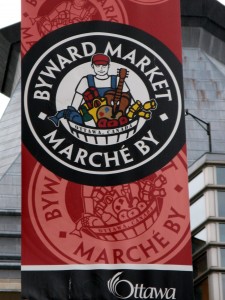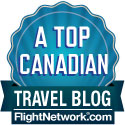Speaking Canadian: But do you speak Ottawan?
 Most Americans, Brits, Australians, or other English-speakers who move to Canada assume that they’ll be able to understand Canadian English.
Most Americans, Brits, Australians, or other English-speakers who move to Canada assume that they’ll be able to understand Canadian English.
In fact, before we relocated to Canada from the U.S., it didn’t occur to me that there would be as many differences between Canadian and American English as there are.
So I had to learn to take my grocery purchases to the till (the cash register), put on my runners (sneakers or tennis shoes) before going for a walk, and of course, in winter always wear a toque (pronounced “toook” — and it’s a ski hat)!
Perhaps that’s why I especially enjoyed reading a recent post from Let’s Go Ottawa: An Insider’s Guide to Ottawa and Canada’s Capital Region.
It’s called “Do you speak Ottawan?“
When Ottawans talk about “the Market” or “the Sens” or “the Chateau,” do you know what they mean?
I didn’t.
Read “Do you speak Ottawan?” and you’ll find out!
For more on “Speaking Canadian,” check out my “Sled vs. Sledge” post or this article about unique Canadian words and phrases from Canada’s adventure couple.
(And if you want to know more about living in Ottawa, have a look at: Moving to Ottawa? Relocation resources for Canada’s “cool capital.â€)
What about you? Are there other Canadian words or phrases that have puzzled you? Leave a comment and let us know.
Byward Market Photo @Carolyn B. Heller





















I work in BC at one of the mines and the miners (operators mostly)say you betcha after asking to do something or if you can do something.
My relative is working in Canada and she is telling me that she really can’t understand some of the Canadian language too. The sahring in this post actually got me pretty excited to learn their language. It may be hard the first time but once I get used to it, I know I’ll learn it someday.
I rarely say the till though… but yes, there are some British English expressions or words in Canadian English. Plus some French!
I had to get used to Canadian/British spelling, too. I had expected some differences from American spelling — like colour, neighbour, flavour, centre, theatre, kilometre — but there were many I had to learn. Licence (not license), enrol (not enroll), traveller (not traveler), cheque (not check), jewellery (not jewelry)…
In Vancouver, there’s much less French than in Ottawa. Are there common French expressions you frequently hear?